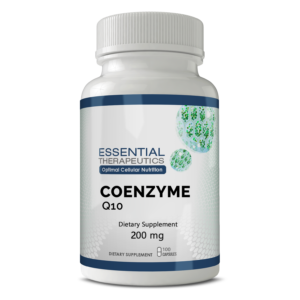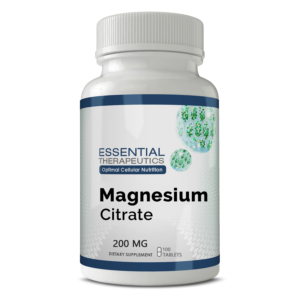Fish Oils Help Prevent and Reverse Depression
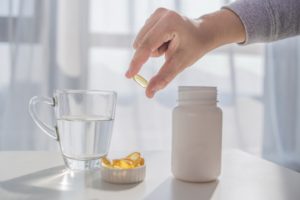 Omega-3 fatty acids may help alleviate depression but only when a particular type of fatty acid called DHA is used in the right ratio with another fatty acid known as EPA, a new study suggests.
Omega-3 fatty acids may help alleviate depression but only when a particular type of fatty acid called DHA is used in the right ratio with another fatty acid known as EPA, a new study suggests.
The researchers analyzed the results of some 15 previous controlled clinical trials on the use of omega-3s – commonly found in oily fish or in fish oil supplements – to treat depressed people.
They found that when used by itself, DHA (docosahexaenoic acid) alone did not seem to offer any benefit. However, DHA combined with a rather high dose of EPA (eicosapentenoic acid) did improve depressive symptoms.
“Preparations with some EPA had some consistent antidepressant effects, while preparations of pure DHA had no antidepressant effects,” said lead study author Dr. John Davis, a professor of psychiatry at the University of Illinois at Chicago. “I don’t think we can prove it beyond a shadow of a doubt, but there is now evidence from a number of double-blind studies that suggest mixed DHA/EPA has antidepressant properties, whether by itself or given along with traditional antidepressants.”
The study, funded by the U.S. National Institutes of Health, was designed as a meta-analysis, in which researchers combine the results of multiple prior studies.

Conventional Medical Treatment For MVP Not Safe
Conventional medical treatments for MVP typically involves recommending one of the following beta-blockers (Inderal, Lopressor, Tenormin, Toprol, and Blocadren).
Beta-blockers slow the heart rate down by blocking the cell receptors for epinephrine (adrenaline)
Beta-blockers have several potential side effects including congestive heart failure, shortness of breath, heart block, fatigue, lethargy, drowsiness, depression, insomnia, headaches, dizziness, tingling in the hands and feet, wheezing, bronchospasms, increases severity of asthma or chronic pulmonary obstructive disease, decreased sex drive, muscle fatigue, reduces HDL (good cholesterol), increases LDL and triglycerides.
Potential side effects of beta-blockers: According to Mark Houston, MD, associate clinical professor of medicine at Vanderbilt School of Medicine, side effects associated with beta-blockers include congestive heart failure, reduced cardiac output, fatigue, heart block, dizziness, depression, decreased heartbeat and function, cold extremities, paresthesia (a feeling of “pins and needles”), shortness of breath, drowsiness, lethargy, insomnia, headaches, poor memory, nausea, diarrhea, constipation, colitis, wheezing, bronchospasm, Raynaud’s syndrome (burning, tingling, pain, numbness, or poor circulation in the hands and feet), claudication, muscle cramps, muscle fatigue, lowered libido, impotence, postural hypotension, raised triglycerides, lowered HDL, raised LDL, and high blood sugar.
In my experience, the best way to stop the symptoms associated with heart irregularities, including MVP, is to correct magnesium deficiency. Magnesium is a natural sedative that relaxes muscles, and the heart is, of course, mostly muscle. The smooth muscle contained in the blood vessel lining is also dependent on magnesium.
The Nutritional Approach
I’ve found that most patients can overcome MVP without the use of beta blockers (Toprol, Tenormin, and Lorpressor). I recommend my patients take a minimum of 500mg of magnesium citrate (chelate), 100mg of CoQ10, and if needed Hawthorne berry extract.

Researchers have also concluded that a magnesium deficiency can cause severe cardiac problems. Magnesium relaxes arterial smooth muscle, which reduces cardiac stress.
Magnesium acts like a beta-blocker by inhibiting stimulatory hormones including norepinephrine and epinephrine (hormones that increase heart rate). Fortunately, magnesium doesn’t cause fatigue or the other symptoms associated with prescription beta blockers.
Some studies show that those with MVP are deficient in magnesium. Other studies show that magnesium reduces the symptoms of MVP including palpitations, chest pain, and fatigue.
Hawthorne berry acts as a natural beta blocker. The normal dose is 200mg 3 times a day.
Studies show that hawthorn appears to stabilize heart rhythm and should be considered for patients with valvular insufficiency or heart fibrillations.
CoQ10 has demonstrated that it can return heart function to normal. Patients need to take minimum of 100mg indefinitely, as symptoms will usually return with in 2 years of discontinuing therapy.
Statins, beta-blockers, tricyclic antidepressants, and benzodiazepine drugs can all suppress the body’s formation of coenzyme Q10 (CoQ10). CoQ10 is an enzyme that works with other enzymes to keep the body’s metabolic functions working at optimal levels.
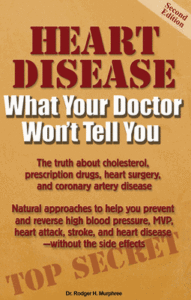 Small amounts of CoQ10 are found in food, but blood levels of CoQ10 decrease with age, high blood pressure, statin use, diabetes, and atherosclerosis. CoQ10’s main purpose is to increase the function of the mitochondria, the “power plants” in each cell. A CoQ10 deficiency can lead to diffuse muscle pain and weakness similar to that seen in FMS and CFS, fatigue, angina, hypertension, accelerated aging, mental confusion, poor memory, tingling or pain in the hands and feet, and heart disease.
Small amounts of CoQ10 are found in food, but blood levels of CoQ10 decrease with age, high blood pressure, statin use, diabetes, and atherosclerosis. CoQ10’s main purpose is to increase the function of the mitochondria, the “power plants” in each cell. A CoQ10 deficiency can lead to diffuse muscle pain and weakness similar to that seen in FMS and CFS, fatigue, angina, hypertension, accelerated aging, mental confusion, poor memory, tingling or pain in the hands and feet, and heart disease.
Discovered by researchers at the University of Wisconsin in 1957, Coenzyme Q10 (CoQ10), also known as ubiquinone, is a powerful antioxidant. Its name comes from the word ubiquitous, which means found everywhere. Indeed, CoQ10 is found in every cell in the body. This fat-soluble, vitamin-like enzyme is more abundant in some cells and organs than in others. It tends to congregate in the organs which need the most energy, especially the heart, brain and liver. The primary function of CoQ10 is to provide cellular energy. In each cell, there are organelles (small organ cells) known as mitochondria. Mitochondria are similar to a car’s cylinders. They allow a chain of chemical reactions to create a spark, which generates 95 percent of the body’s energy. CoQ10 is the spark that helps ignite adenosine triphosphate (ATP), the molecule that serves as the cell’s major energy source.
The importance of CoQ10 to maintain optimal health can’t be overstated. A growing body of research shows that CoQ10 may benefit a number of unwanted health conditions, including diabetes, periodontal disease, chronic fatigue, migraine headaches, skin cancers, diabetes, infertility, cardiovascular disease, immune dysfunction, asthma, muscular dystrophy, and Alzheimer’s, and Parkinson’s disease.
The body can’t manufacture CoQ10; instead, we must obtain CoQ10 from the foods we eat. Meat, dairy and certain vegetables, including spinach, and broccoli, contain the highest concentrations of CoQ10. However, obtaining adequate amounts of CoQ10 through diet alone poses a real challenge. It would take one pound of sardines, or two-and-a-half pounds of peanuts, to provide about 30mg of CoQ10. This is at the very minimum of the recommended daily allowance. In reality, the typical daily intake of CoQ10 from dietary sources is only about 3-5mg per day. This paltry amount isn’t anywhere near the level required to significantly raise blood and tissue levels.
And the fact that we tend to absorb and utilize less as we age increases the risk of developing a CoQ10 deficiency. Researchers estimate that as little as a 25 percent decline in bodily CoQ10 will initiate several disease states, including high blood pressure, heart disease, fatigue, cancer, and immune dysfunction.
What’s more, the biosynthesis of CoQ10 from the amino acid tyrosine is a complex, highly vulnerable seventeen-step process. It requires at least seven vitamins (vitamin B2, vitamin B3, vitamin B6, folic acid, vitamin B12, vitamin C, and B5) and several trace elements. Most American diets are deficient in at least one, if not all, of the cofactors for making CoQ10; seventy-one percent are deficient in vitamin B6 alone.
Dr. Karl Folkers, who has been honored with the Priestly Medal (the highest award bestowed by the American Chemical Society) for his work with CoQ10, believes that suboptimal nutrient intake in man is almost universal and these deficiencies prevent the biosynthesis of CoQ1O. He suggests that, since the average or “normal” levels of CoQ10 are really suboptimal, the very low levels observed in advanced disease states represent only the tip of a deficiency. Unless we are supplementing with CoQ10, we may be, in fact, suffering from a CoQ10 deficiency. Given the added stress posed in today’s society and the need for an ever increasing amount of antioxidants to counter this stress, could it be that many, if not all, of our chronic illnesses are due to suboptimal levels of CoQ10?

The cardiovascular system is especially vulnerable to CoQ10 deficiencies. The heart consumes huge amounts of CoQ10 initiated ATP. The muscles of the heart contract and relax some 100,000 times a day and pump blood through 60,000 miles of arteries and veins with each beat.
Dr. Folkers reports, “I believe it is quite possible that cardiovascular disease may be significantly caused by a deficiency of CoQ10. CoQ10 is known to be deficient in congestive heart failure (CHF), with the degree of deficiency in blood and cardiac tissue correlating with the severity of the CHF.”
The results of using CoQ10 in treating cardiovascular related illnesses can be quite dramatic as the studies cited in the references on page 250 illustrate.
A group of class IV (terminal) CHF patients were supplemented with CoQ10 in addition to their prescription medications. Normally, class IV patients live only a matter of days. Seventy-one percent of those taking the CoQ10 survived one year and 62 percent survived two years!
Administering CoQ10 (50-150mg daily) for ninety days to 2,664 patients with CHF resulted in the following symptomatic and clinical improvements: cyanosis (bluish skin color), 78.1%; edema, 78.6%; pulmonary crackle, 77.8%; dyspnea (poor breathing), 52.7%; palpitations, 75.4%; sweating, 79.8%; arrhythmia (irregular heart beats), 63.4%; and vertigo, 73.1%.
CoQ10 significantly improves diastolic and systolic pressure in essential hypertension. Studies show that taking 100-225mg of CoQ10 a day reduces blood systolic blood pressure by an average of fifteen points and diastolic pressure by ten points. And more than half of patients receiving 225mg/day were able to terminate use of from one to three antihypertensive medications.
Mitral valve prolapse is a common condition associated with a heart murmur. It is often asymptomatic but can produce chest pain, arrhythmia, or leakage of the valve, leading to congestive heart disease. One study showed that, when children with mitral valve prolapse received CoQ10 (2 mg/kg a day) for eight weeks, heart function returned to normal in seven of the eight children; none of the placebo-treated patients improved. Relapse was common among those who stopped taking the medication within twelve to seventeen months, but rarely occurred in those who took CoQ10 for nineteen months or more.
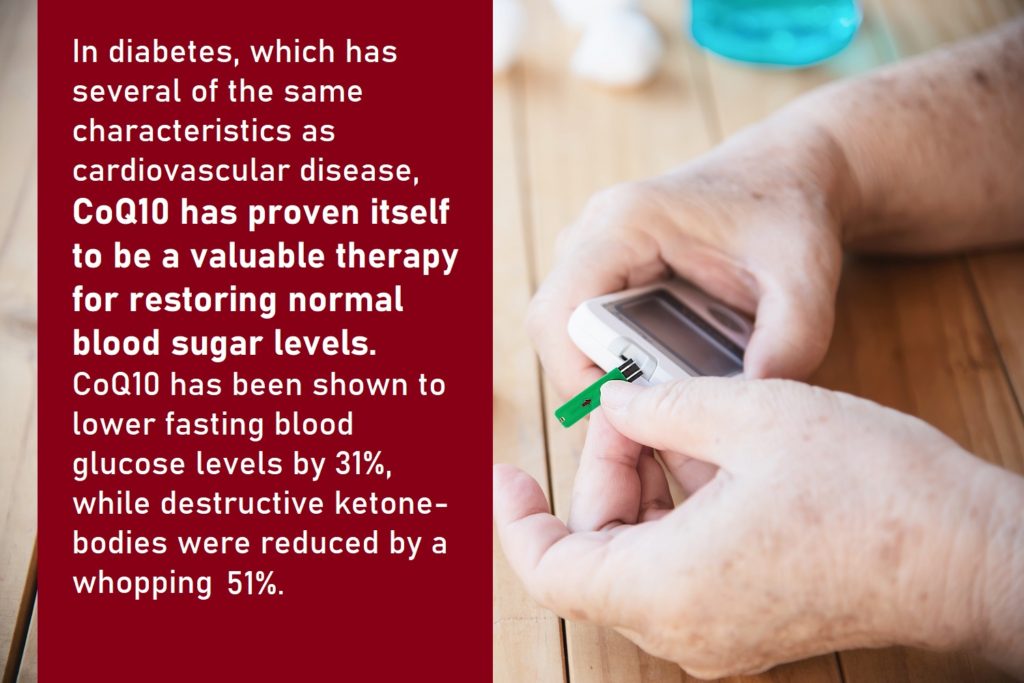
Even the common symptom of heart disease, chest pain, is no match for CQ10 therapy. Compared to placebo, CoQ10 was shown to reduce the frequency of angina or chest pain by 53 percent.
The benefits of CoQ10 in the treatment of cardiovascular disease are indisputable; CoQ10 should be the first line of therapy for anyone suffering from cardiovascular disease.
Yet, incredibly, the common drugs used as cardio-related drugs actually deplete CoQ10. Theses drugs include beta-blockers (Toprol, Tenormin, Coreg, Lopressor, Inderal, and others), vasodilators (hydralazine), thiazide diuretics (Aldactazide, Diuril, Dyazide, Moduretic, HydroDiuril, Micozide, and others), centrally-active hypertensives (Clonidine or Catapres, Aldoril, and Methyldopa) and, of course, lipid-lowering statins (Lipitor, Crestor, Zocor, Mevacor, Vytorin, and others).
Other drugs that deplete CoQ10 include anti-diabetic sulfonylureas drugs (Acetohexamides, Amaryl, Diabenese, Diabeta, Glucatrol, Micronase, Glyburide and Tolazamide), and tricyclic antidepressants (Elavil, Trazadone, Doxepin, Pamelor, and others).
Could it be that patients with cardiovascular-related illnesses actually accelerate their illness by taking these medications? Could the rise of statins and other popular cardio drugs, including beta-blockers, which deprive the heart of CoQ10, be the reason for the increase in hypertension, diabetes, heart disease and congestive heart failure (CHF)?
And, just as important, could these medications be causing or contributing to the chronic pain, fatigue, immune dysfunction, migraines, brain fog, hypertension, CHF, and or neuropathy symptoms of our patients? My experience suggests that they often do cause or contribute to the overall poor health of the patients I see, especially the complicated “medical misfits.”
My book Heart Disease: What Your Doctor Won’t Tell You goes into greater detail about CoQ10 and its use in treating high blood pressure, congestive heart failure, mitral valve prolapse, and other heart-related conditions.
Study Finds Mindfulness Helps Prevent Depression
 Mindfulness, or paying attention to the present moment, can help prevent a relapse back into depression, according to new research. Moreover, the study concluded that being in the moment — and not judging it – helped patients stave off depressive symptoms as effectively as traditional antidepressant medication during an 18-month period.
Mindfulness, or paying attention to the present moment, can help prevent a relapse back into depression, according to new research. Moreover, the study concluded that being in the moment — and not judging it – helped patients stave off depressive symptoms as effectively as traditional antidepressant medication during an 18-month period.
A common problem with antidepressant medication is that patients often stop taking the drugs far too soon. Some start feeling better and discontinue their meds; others are unwilling to take pills for years or experience side effects, said lead author Zindel Segal, a psychologist at the Center for Addiction and Mental Health in Toronto.
The study published in the current issue of the Archives of General Psychiatry compared the effectiveness of antidepressant drugs with mindfulness-based cognitive therapy (MBCT) by studying people who were initially treated with medication and then either stopped taking the drug in order to receive MBCT, continued taking medication for 18 months or received a sugar pill placebo.
The researchers found that the patients treated with medication and mindfulness fared significantly better than those given a placebo. Over an 18-month period, patients receiving the placebo relapsed at a rate of 70 percent. The patients who were receiving mindfulness therapy or antidepressants relapsed at a rate in the 30 percent range.
Mindfulness therapy, which incorporated meditation, may be beneficial because it helps people connect with their emotions, said Segal, a professor of psychiatry at the University of Toronto. “Mindfulness is a way of paying attention to our experience; it’s developing the ability to observe and not to judge,” he said.
>> Those looking for natural antidepressants to use with or instead of prescription drugs should read my article on anxiety and depression.
